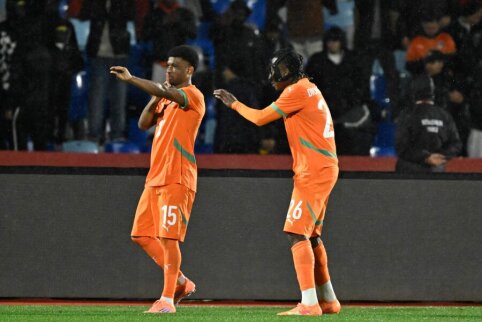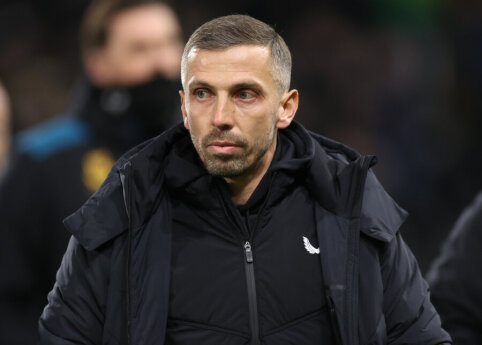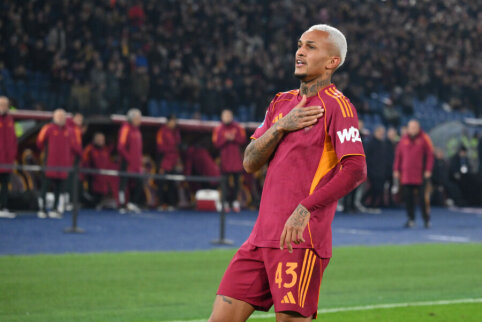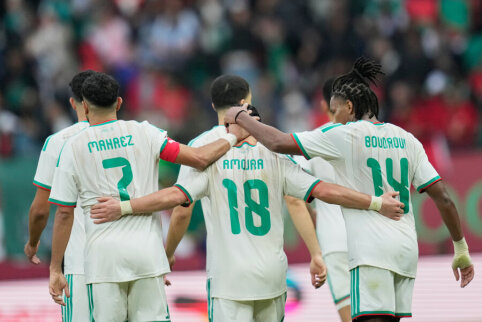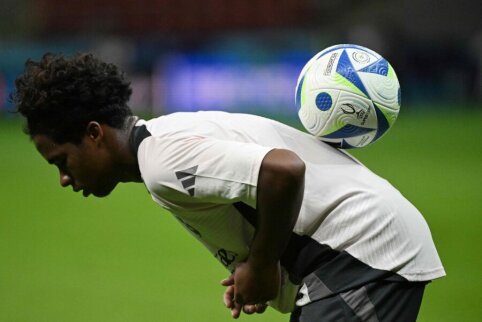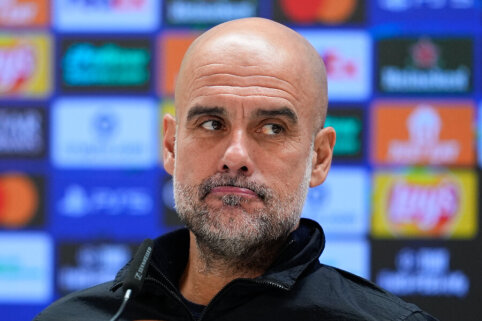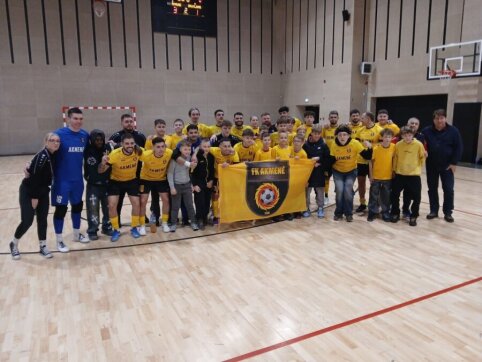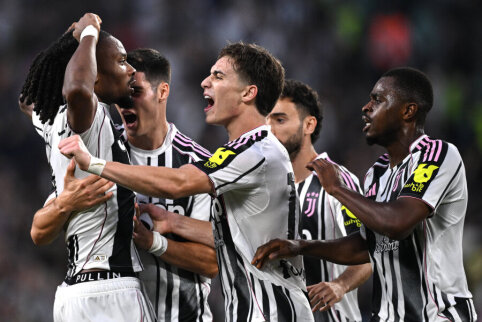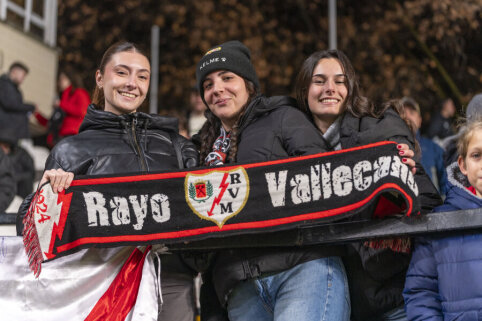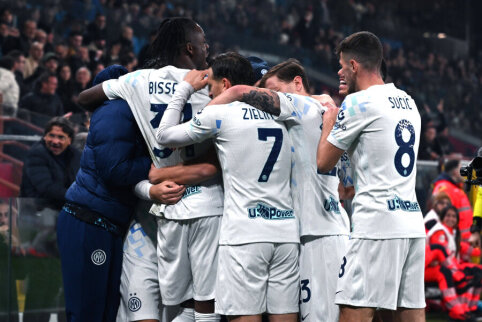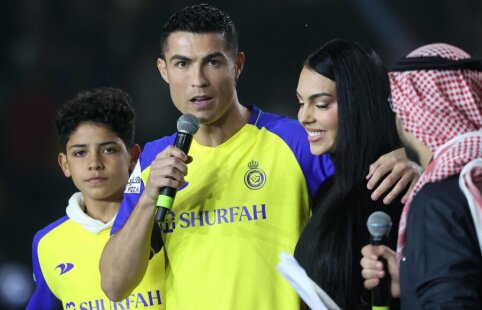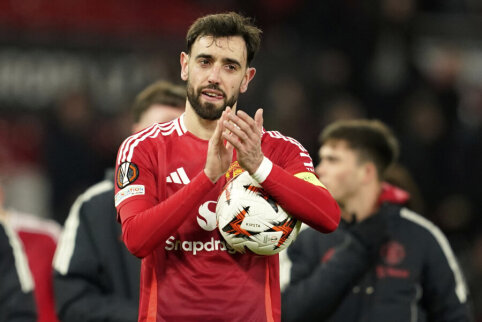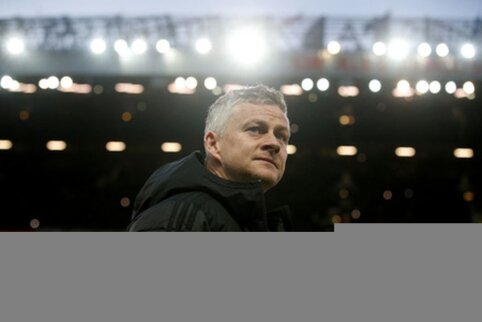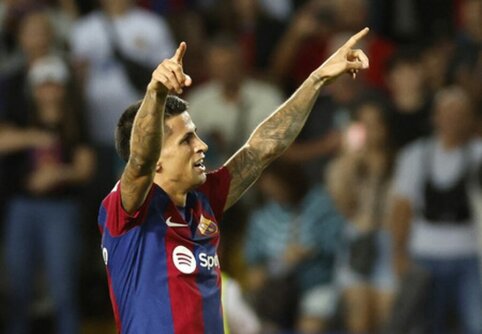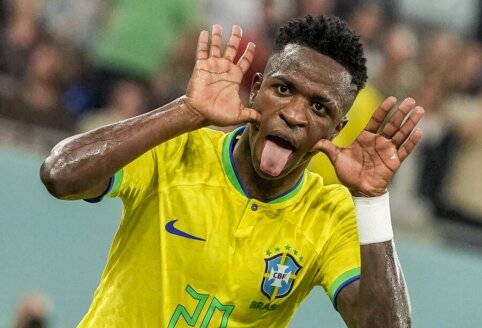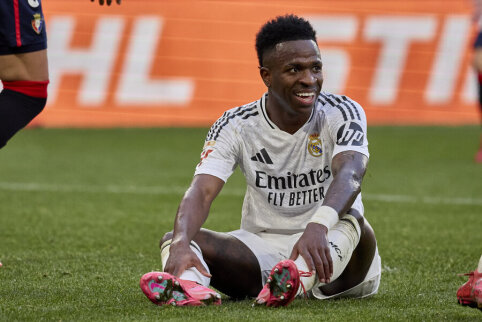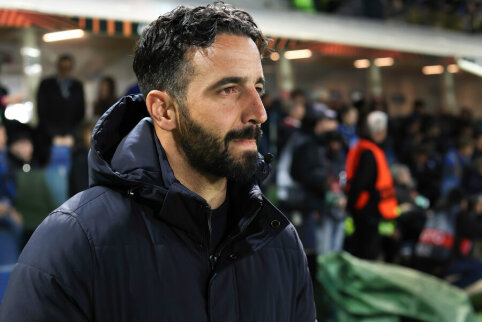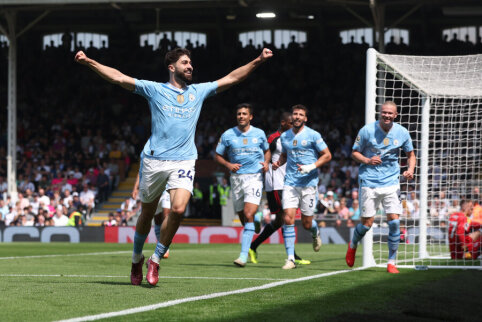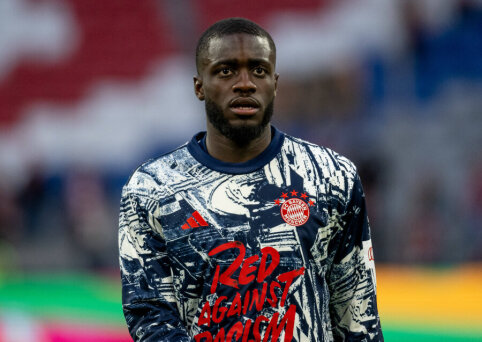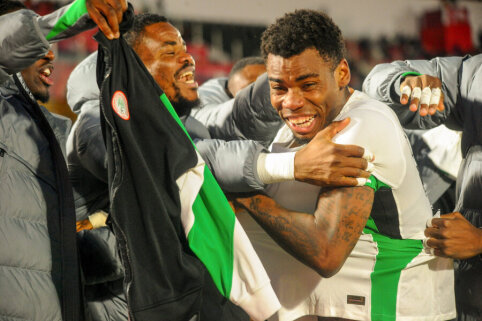 © EuroFootball.com
© EuroFootball.com
What mood will the best Lithuanian footballers return to their clubs with? This will become clear after the second match of the World Cup qualifiers away to the Greeks, who this year played in the quarterfinals of the European Championship.
The Lithuanians started the qualifiers with a 1:1 draw at home against the Slovaks, while the Greeks won 2:1 away to the Latvians on the same Friday evening, where the Latvians dictated their terms and led at halftime.
It is obvious that the Greek footballers playing at home will only think about another victory, which would allow them to establish themselves at the top of Group G.
The Lithuanian national team departed for Greece yesterday morning with a slightly changed lineup.
Due to injury, Tomas Danilevičius will not be able to help the team, and Tadas Labukas, who received a red card, must miss the match. In their place, the "Šiauliai" forward Artūras Rimkevičius was called up to the national team.
On Saturday and Sunday, the players trained on the natural grass of the "Vingis" stadium, not on the synthetic surface of the LFF stadium, which the players criticized after the match against the Slovaks.
The worries about Edgaras Česnauskis did not materialize, as after a rough error which earned him a red card against the Slovak, he was soon substituted.
The player stated that he had avoided serious injury: "I am healthy and ready one hundred percent. I could have continued the match, but that was the coach's planned substitution."
The team captain's armband was taken over from T. Danilevičius by Deividas Šemberas, who has no doubts that the match against the Greeks will be much harder: "It is obvious and we are preparing for it.
The Greek national team regularly participates in the final stages of European Championships, so they do not need much introduction.
The coaches analyzed the opponents' game and pointed out their strengths and weaknesses. We will try to take advantage of them."
According to E. Česnauskis, playing against Greece will require an even better performance than against the Slovaks: "The opponents will play at home and will seek victory even more stubbornly. We will have to look for our opportunities to counterattack.
We will have to play better than on Friday."
Greece. Area – 132 sq. km. Population – 10.8 million. Capital – Athens (656 thousand inhabitants; with suburbs – 3.1 million).
World Cup. Participated 2 times (1994 and 2010). They were eliminated in the first stage both times and achieved only 1 victory out of 6 matches.
European Championships. Participated 4 times (1980, 2004, 2008, and 2012). Won the gold medal in 2004. They finished 2nd in their group at this year's European Championship (drew 1:1 with Poland, lost 1:2 to the Czech Republic, and won 1:0 against Russia), and were eliminated in the quarterfinals losing 2:4 to Germany.
Notable footballers. The most capped players in the national team are Giorgos Karagounis (120; playing for the national team since 1999), Theodoros Zagorakis (120; 1994-2007), Angelos Basinas (100; 1999-2009), and Kostas Katsouranis (97; since 2003). The top goal scorers are Nikos Anastopoulos (29; 1977-1988), Angelos Charisteas (25; since 2001), and Theofanis Gekas (23; since 2005).
Stadiums. The national team often plays at the George Karaiskakis Stadium in Piraeus, which was opened in 1896 but rebuilt from the ground up in 2004 and now has 32,1 thousand seats. In recent years, they also played at the Heraklion "Pagkritis" (26.2 thousand seats) and Athens Olympic (69.6 thousand seats) stadiums.
Coach. 57-year-old Portuguese Fernando Santos has been coaching the Greek national team since the summer of 2010. He ended his player career at the age of 21, then became a telecommunications and electrical engineer by profession, and worked in that field for a while. In 1987, F. Santos began his coaching career and has since managed some of the strongest clubs in Portugal (Porto, Lisbon Sporting, Lisbon Benfica) and Greece (AEK Athens, Panathinaikos Athens, PAOK Thessaloniki).
Stars. The most famous Greek footballers nowadays are G. Karagounis (35; Fulham, England), K. Katsouranis (33; Panathinaikos Athens), A. Charisteas (32; without a club), T. Gekas (32; Levante, Spain), Giorgos Samaras (27; Glasgow Celtic, Scotland), Kyriakos Papadopoulos (20; Schalke 04, Germany), Giorgos Tzavelas (24; Monaco, France), Vasilis Torosidis (27; Olympiacos Piraeus).
Lithuania against Greece. These teams have only played once before. On May 17, 1995, Lithuania defeated Greece 2:1 in a friendly match in Vilnius (goals scored by D. Maciulevičius and A. Preikšaitis).
